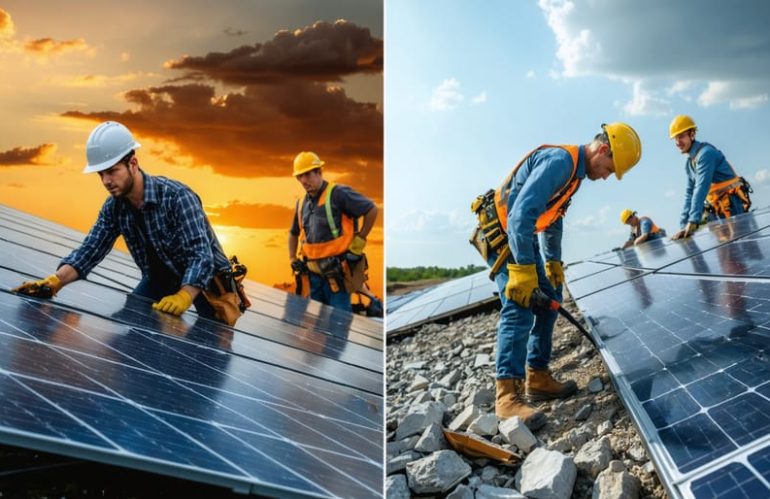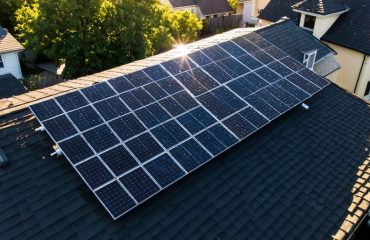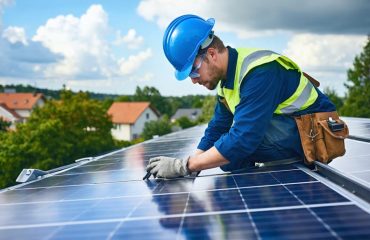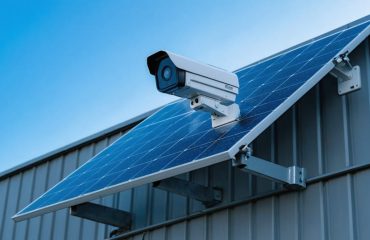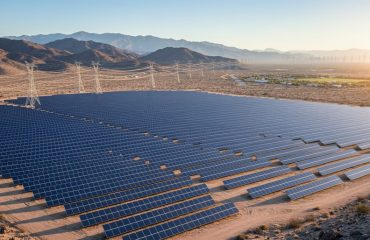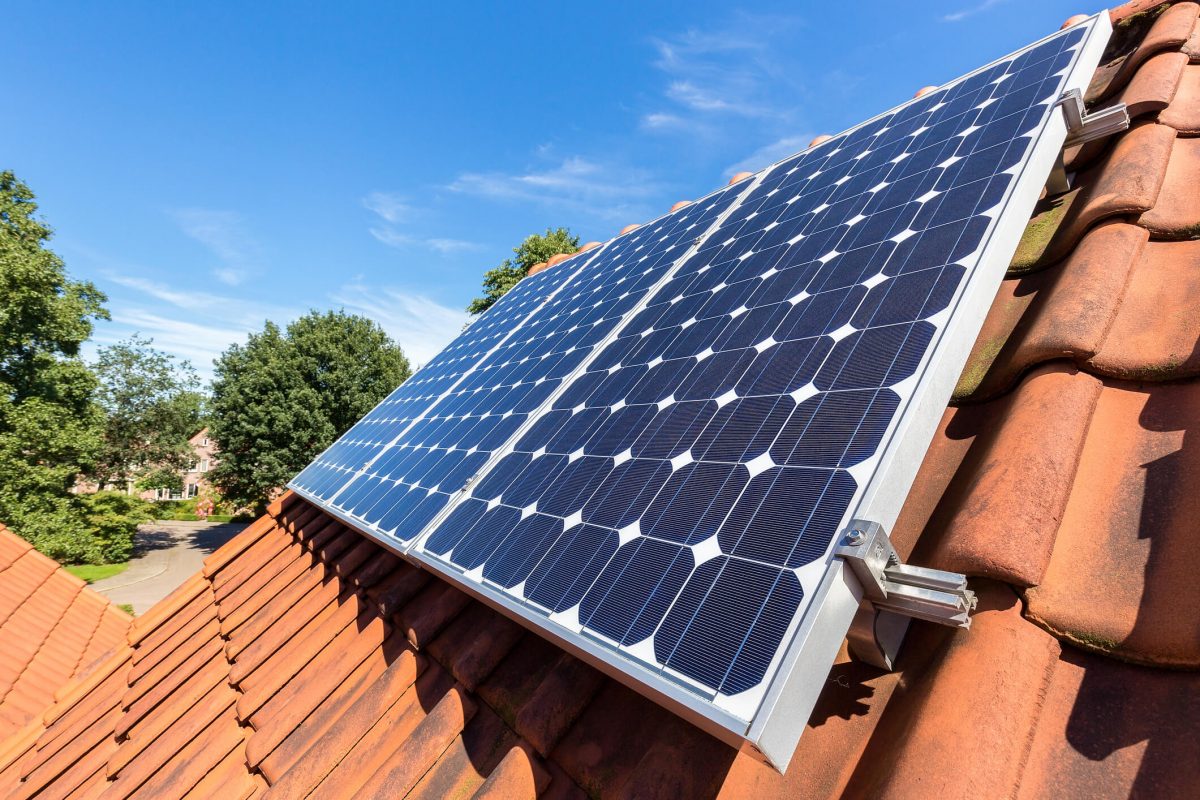Solar contractors face unique risks that demand specialized insurance protection beyond standard business coverage. From potential damage during panel installations to long-term performance guarantees, the solar industry presents distinct challenges that can significantly impact your bottom line. Professional solar contractors insurance safeguards your business against liability claims, equipment damage, and worker injuries while meeting state licensing requirements and client contract demands.
Securing comprehensive coverage becomes increasingly critical as the solar industry expands and installation projects grow more complex. A well-structured insurance policy protects against common risks like accidental property damage during installation, worker injuries from falls, and potential claims related to system performance or electrical issues. It also provides essential coverage for specialized equipment, transportation of materials, and ongoing maintenance obligations.
This strategic approach to risk management not only protects your business assets but also enhances your credibility with customers and partners. Understanding the specific coverage types and limits needed for solar contracting operations ensures your business remains resilient while meeting industry standards and regulatory requirements.
Essential Insurance Coverage Every Solar Contractor Needs
General Liability Coverage
General liability coverage forms the foundation of any solar contractor’s insurance portfolio, protecting against everyday business risks that could otherwise be financially devastating. This essential coverage safeguards your business when accidents occur, covering property damage and bodily injury claims that might arise during solar installation projects.
For example, if your crew accidentally damages a client’s roof while installing solar panels, or if a visitor trips over installation equipment at your worksite, general liability insurance steps in to cover medical expenses, legal fees, and potential settlements. It also provides protection if your completed work causes damage after the installation is finished.
The coverage typically includes premises liability, which protects against accidents at your business location, and products-completed operations coverage, which addresses issues that might arise from your installed solar systems. Most policies offer between $1 million to $2 million in coverage, though coverage limits can be adjusted based on your business size and specific needs.
For solar contractors, having adequate general liability coverage isn’t just good business practice – it’s often required by state regulations and client contracts.
Professional Liability Insurance
Professional liability insurance, also known as errors and omissions (E&O) coverage, protects solar contractors from claims arising from design mistakes, incorrect recommendations, or professional oversights during solar installations. This coverage is particularly crucial in the solar industry, where system design and specifications directly impact energy production and efficiency.
For example, if you miscalculate a roof’s load-bearing capacity or provide incorrect energy production estimates, professional liability insurance can cover legal defense costs and settlements. It also protects against claims related to improper system sizing, incorrect placement of solar panels, or errors in energy efficiency calculations that result in financial losses for your clients.
Even minor oversights can lead to significant claims, especially when dealing with complex solar installations. Professional liability insurance ensures that one mistake doesn’t jeopardize your business’s financial stability. It’s particularly valuable when offering consulting services or making specific performance guarantees for solar installations, providing peace of mind for both contractors and their clients.
Specialized Coverage for Solar Installation Risks
Installation Coverage
Installation coverage is a crucial component of solar contractors insurance, protecting your business during the most critical phase of solar panel deployment. This specialized rooftop installation coverage safeguards against accidents, equipment damage, and potential injuries that may occur during the installation process.
The coverage typically includes protection for your crew while they’re working on ladders, rooftops, and other elevated surfaces. It also extends to the solar equipment being installed, protecting against damage during transportation and mounting. This insurance helps cover costs related to accidental drops, weather-related incidents, and other unforeseen circumstances that might arise during installation.
What makes installation coverage particularly valuable is its comprehensive nature. It not only protects physical assets but also covers potential property damage to the customer’s home or business during installation. This includes protection against structural damage, water infiltration from roof penetrations, and electrical system complications.
The policy usually covers the entire installation timeline, from initial site preparation to final system testing. This ensures that your business remains protected throughout every step of the solar panel installation process, giving both you and your customers peace of mind. Remember to review your policy details carefully to understand specific coverage limits and any exclusions that might apply to different installation scenarios.
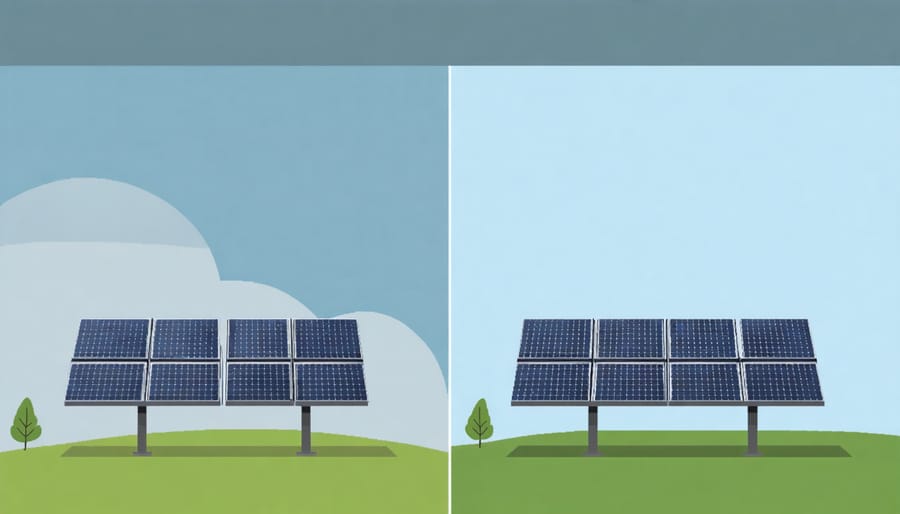
Workmanship Coverage
Workmanship coverage is a crucial component of solar contractor insurance that protects against issues that may arise after installation is complete. This specialized coverage addresses warranty claims and workmanship defects that could surface months or even years after the solar system is installed.
When a solar installation doesn’t perform as promised or develops problems due to installation errors, workmanship coverage steps in to handle repair costs and potential compensation claims. This insurance typically covers issues such as improper mounting, faulty wiring connections, or water leakage caused by incorrect roof penetrations.
Most workmanship coverage policies provide protection for 2-10 years after installation, though terms can vary by provider. This long-term protection gives homeowners peace of mind and helps solar contractors maintain their reputation in the competitive renewable energy market.
Common claims under workmanship coverage include:
– Mounting system failures
– Electrical connection issues
– Water damage from improper sealing
– Performance issues related to installation errors
– System component misalignment
When selecting workmanship coverage, contractors should carefully review the policy duration, coverage limits, and specific exclusions. It’s also important to understand how this coverage works alongside manufacturer warranties and other insurance policies to ensure comprehensive protection for both the contractor and their clients.
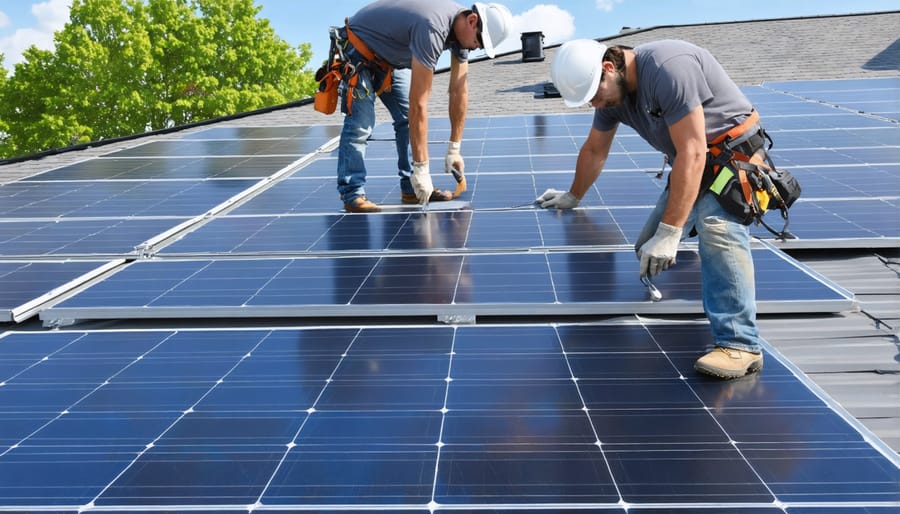
Workers’ Compensation and Employee Protection
Workers’ compensation insurance is a vital component for solar installation companies, protecting both the business and its employees. This coverage is not just recommended – it’s legally required in most states for companies with employees. For solar contractors, whose teams regularly work at heights and handle electrical components, this protection is particularly crucial.
The coverage typically includes medical expenses, lost wages, and rehabilitation costs if an employee is injured on the job. Given the physical nature of solar installation work, common workplace injuries might include falls from roofs, electrical burns, strain from lifting heavy panels, or injuries from tools and equipment.
Beyond the basic requirements, many solar contractors opt for enhanced employee protection coverage. This can include additional benefits like occupational disease coverage, which is important for workers who may be exposed to hazardous materials or extreme weather conditions. It’s also wise to consider coverage that extends to temporary workers or subcontractors, as many solar projects require supplemental labor.
To maintain reasonable insurance rates while ensuring comprehensive protection, solar contractors should:
– Implement robust safety training programs
– Regularly update workplace safety protocols
– Maintain detailed records of safety meetings and incidents
– Provide proper protective equipment
– Establish clear emergency response procedures
Remember that workers’ compensation coverage requirements vary by state, and the specific needs of your solar installation team may require additional protections. Working with an insurance provider who understands the solar industry can help ensure your team has appropriate coverage while keeping costs manageable.
Equipment and Tools Coverage
Solar contractors rely heavily on specialized equipment and tools to perform installations efficiently and safely. From power tools and testing equipment to lifting devices and safety gear, these valuable assets represent a significant investment in your business. Equipment and Tools Coverage ensures these essential items are protected against theft, damage, or loss during transportation, storage, and use at job sites.
This specialized coverage goes beyond standard property insurance by protecting your equipment both on-site and in transit. It can include coverage for portable tools, mobile equipment, and even rented or leased equipment used in solar installations. To effectively protect valuable solar equipment, policies typically cover risks such as:
– Theft from vehicles or job sites
– Accidental damage during use
– Natural disasters affecting storage facilities
– Equipment malfunction or breakdown
– Damage during transportation
When selecting coverage, consider the replacement value of your equipment rather than its depreciated value. This ensures you can replace stolen or damaged items with new ones without significant out-of-pocket expenses. Many insurers also offer options for temporary replacement equipment, helping minimize business interruption if critical tools are damaged or stolen.
Remember to regularly update your equipment inventory and coverage limits as your business grows and you acquire new tools. This helps ensure adequate protection for all your valuable assets.
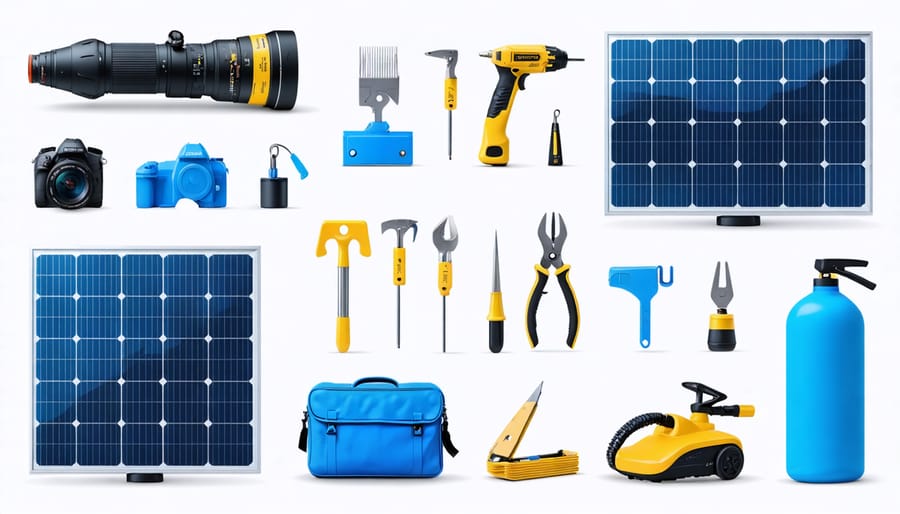
In today’s rapidly growing solar industry, comprehensive insurance coverage isn’t just a legal requirement—it’s a crucial investment in your business’s future. Having the right insurance protection safeguards your company against unexpected challenges while demonstrating professionalism to potential clients. A well-structured insurance package helps maintain your reputation, protects your employees, and ensures your business can weather any storms that come your way. Remember that as the solar industry evolves, so do its risks and challenges. Regular review and updates of your insurance coverage will help ensure your business stays protected as you contribute to a more sustainable future. By prioritizing proper insurance coverage, you’re not just protecting your business—you’re investing in the long-term success of your solar contracting company.

